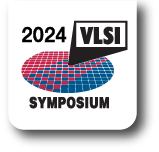The VLSI Workshop sessions are key elements of the 2024 IEEE Symposium on VLSI Technology & Circuits program. The Workshop sessions will be held during the VLSI Symposium in person and available for on demand viewing. The topics and scope of the Workshops are merging research and application, which has not been covered in detail in the technical program of the symposium and could be the future new areas of the symposium.
Sunday, June 16 – 1:00 p.m. – 6:00 p.m.
Technology Workshop 1 – Tapa 1
1:00 PM – 3:00 PM
3D Integration for Analog and RF
Information to come
Technology Workshop 2 – Tapa 1
3:15 PM – 6:00 PM
Novel Metals for Advanced Interconnects
Organizer: Christoph Adelmann, Zsolt Tőkei, imec
An industry perspective of beyond Cu, alternative metal interconnects
Speaker: Christopher Jezewski, Intel
Replacing Tungsten and Copper by Molybdenum in logic technology
Speaker: Vamsi Paruchuri, ASM International
The search for new materials for interconnects < 10 nm
Speaker: Daniel Gall, Rensselaer Polytechnic Institute
Opportunities and challenges of intermetallic compounds for future interconnects
Speaker: Junichi Koike, Tohoku University
Intercalated Graphene for Advanced Interconnects
Speaker: Kaustav Banerjee, Destination 2D and University of California Santa Barbara
Interconnect Technology/System Co-Design for VLSI Logic and Memory Systems
Speaker: Chenyun Pan, University of Texas at Arlington
Standing Workshop – Tapa 2
Advancing SoC Design: Open-Source and ML-Driven Approaches in the Cloud
1:00 PM – 5:00 PM
SCloud bursting an EDA workload with ML-driven technique for future SoC development
Speaker: Wachirawit Ponghiran and Jinwook Jung, IBM Research
Generative AI-based EDA for SoC
Speaker: Rongjian Liang, NVIDIA
Chipyard: An Open-Source Design, Simulation, and Implementation Framework for Custom RISC-V SoCs
Speaker: Sagar Karandikar, UC Berkeley
ESP: An Open-Source Platform for Agile SoC Design
Speaker: Luca Carloni, Columbia University
AMS generation frameworks: an industry perspective
Speaker: Cooper Levy, Intel
Agile SoC Design With OpenROAD and Proprietary Flows: A Retrospective
Speaker: Austin Rovinski, NYU
Agile-X: democratization base of innovative semiconductor technology
Speaker: Makoto Ikeda, University of Tokyo
Freshmen through Ph.D. students experience open-source tape-out: successes and pitfalls
Speaker: Mark Johnson, Purdue University
Circuits Workshop 1 – Honolulu 1-3
1:00 PM – 3:00 PM
High-performance mixed-signal circuits: recent art balancing the analog vs. digital effort
Introduction
Speaker: Jorge Lagos, imec and Tetsuya Iizuka, The University of Tokyo
PLLs
Speaker: Bogdan Staszewski, UCD
DACs
Speaker: Martin Clara, Intel
ADCs
Speaker: Huseyin Dinc, Analog Devices
Circuits Workshop 2 – Honolulu 1-3
3:30 PM – 5:30 PM
BioSensory Breakthroughs: Pioneering the Future of Health Tech
Injectable Biosensors: Is there a future?
Speaker: Drew Hall, UCSD
Low-Power AI-Driven Neural Interfaces for Treating Brain Disorders
Speaker: Mahsa Shoaran, EPFL
Low-Power Bioimpedance Measurement Techniques for Sensing and Imaging
Speaker: Minkyu Je, KAIST
Silicon Device based miniaturized biosensors for Healthcare & IoT
Speaker: Sufi Zafar, IBM
CMOS bioelectronics for volumetrically efficient implantables
Speaker: Ken Shepard, Columbia University
A Battery-free Sticker-like Reader for Wireless Passive Sensors
Speaker: Ada Poon, Stanford University



